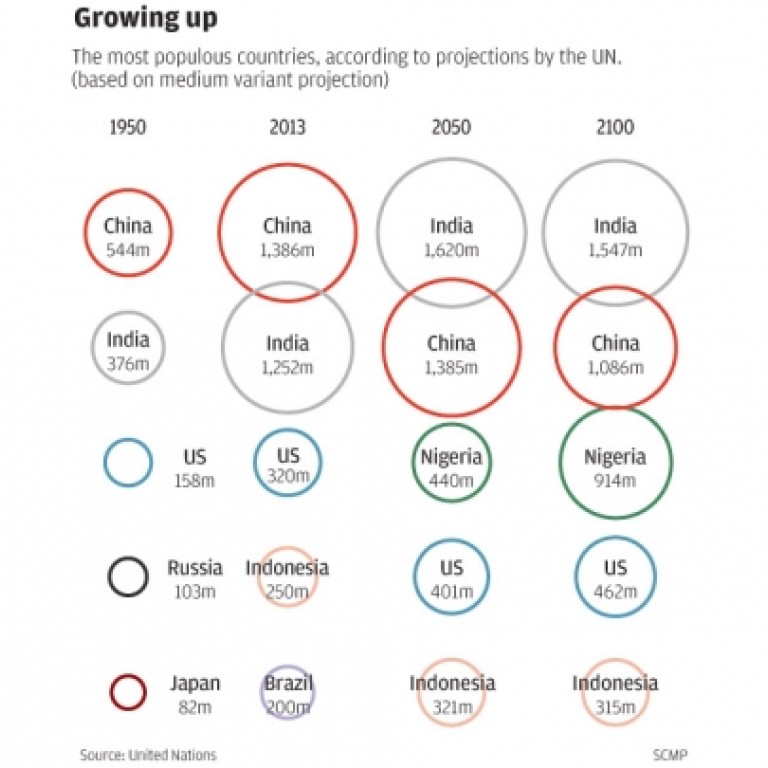
World's population to hit 7.2 billion next month, says UN report
India to overtake China as the most populous country by 2028, UN report forecasts
The population of the world will reach 7.2 billion next month and 10.9 billion by 2100, with most of the growth a result of high birth rates in the developing world, the UN says.
The UN's latest "World Population Prospects" report says the number of people inhabiting the planet at the start of the next century could top 16.6 billion or, depending on the statistical model, could be as low as 6.8 billion.
In either case, the population in the world's poorest regions was anticipated to rise dramatically, the UN said.
The number of inhabitants in the world's least developed countries is projected to double, from 898 million inhabitants this year to 1.8 billion in 2050. The number would soar to 2.9 billion by 2100, the UN report said.
"Although population growth has slowed for the world as a whole, this report reminds us that some developing countries, especially in Africa, are still growing rapidly," Wu Hongbo, United Nations undersecretary general for economic and social affairs, said.
In other findings, the UN study said India would surpass China as the world's most populous country around 2028, when both nations would have about 1.45 billion people.
India will continue to grow for several decades after that to about 1.6 billion and then slowly slip to 1.5 billion in 2100. China's population is expected to start decreasing after 2030 and could fall to 1.1 billion in 2100.
Population in the world's developed nations is expected to remain largely unchanged, inching upward from 1.25 billion this year to around 1.28 billion in 2100.
Much of the increase in world population between 2013 and 2050 - when the number is expected to hit 9.6 billion - is projected to take place in Africa.
The report said that half of all population growth between 2013 and 2100 is expected to be concentrated in just eight countries: Nigeria, India, Tanzania, the Democratic Republic of Congo, Niger, Uganda, Ethiopia and the United States.
The study also highlighted the fast-growing number of elderly people - and not just in rich regions. In more developed parts of the world, 23 per cent of the population is already 60 or older. Their percentage is projected to climb to 32 per cent in 2050, and 34 per cent in 2100.
Globally, the number of people aged 60 or older is expected to more than triple by 2100 to hover near 3 billion. The proportion of older citizens in developing countries is forecast to more than double by 2050 and triple to 27 per cent by 2100.
The number of people aged at least 80 is projected to spike almost seven-fold to 830 million by the start of next century, up from 120 million this year and 392 million in 2050.
